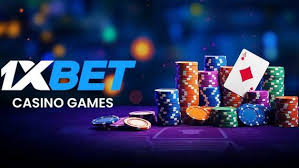
sport betting 1xbetpak Sport betting can be thrilling, rewarding, and intellectually challenging when approached with discipline. This article outlines essential concepts, practical strategies, and attitudes that will help both newcomers and experienced bettors make smarter decisions. Whether you are interested in betting on football, basketball, tennis, or niche sports, the principles of value, risk management, and emotional control apply universally.
Fundamentals first: odds, markets, and implied probability. Odds—decimal, fractional, or American—are simply the bookmaker’s expression of probability and the return you can expect on a successful bet. Converting odds to implied probability helps identify discrepancies between a bookmaker’s estimation and your own research. Markets vary widely: match-winner, totals (over/under), handicaps (spreads), props (individual events), and futures. Understanding the mechanics of each market reduces costly mistakes.
Bankroll management is the backbone of sustainable betting. Decide in advance how much money you can afford to allocate and accept that variance is part of the game. Use staking plans—flat stakes or percentage-based units—to protect your capital and survive losing streaks. A common approach is to wager 1–3% of your bankroll on each selection; aggressive bettors may stake more, but increased risk often leads to burnout and poor decision-making.
Finding value is what separates successful bettors from casual gamblers. Value exists when your assessment of probability is higher than the implied probability implied by the odds. This requires research: form, injuries, head-to-head history, weather, motivation, and situational factors like travel or fixture congestion. Quantitative models can augment gut feeling. Use statistical tools, Poisson models, or machine learning to estimate expected outcomes, but pair numbers with qualitative insight.
Live betting adds excitement and opportunities to exploit in-game dynamics. It demands quick judgment and a good feel for momentum shifts. Watch matches when possible and track betting lines closely; sometimes a bookmaker’s lag creates short windows of favorable odds. However, avoid impulsive bets driven by emotion. Live markets are fast and can amplify losses when discipline is lacking.
Specialize rather than spread thinly across dozens of sports. Depth of knowledge in a single league or sport gives you an edge: you will notice patterns, subtleties, and inefficiencies missed by generalists. Monitor lesser-known leagues where bookmakers devote fewer resources—edges are often easier to find there. Yet keep a record of bets and regularly review performance to identify strengths and weaknesses in your approach.

Use multiple sportsbooks to compare lines and secure the best odds. Shopping for value means slight differences in price can compound into significantly higher long-term returns. Keep an eye on promotions and bonuses but read terms and wagering requirements carefully; not all offers are worth pursuing. Also consider transaction costs like deposit fees and currency conversion when choosing providers.
Data and analytics increasingly influence sport betting. Publicly available data—from shot maps and expected goals in soccer to advanced player metrics in basketball—can be mined for predictive signals. Combine this data with your own models and backtest strategies on historical datasets. Backtesting reveals how strategies might have performed in the past, but beware of overfitting: a model that perfectly describes historical noise is unlikely to perform well in live conditions.
Mindset matters. Successful bettors accept losses as part of the process and focus on making +EV (positive expected value) decisions rather than obsessing over short-term results. Emotional control prevents tilt—irrational betting after losses—and encourages consistency. Keep a betting journal: record your rationale for each wager, the stake, the odds, and the outcome. Reviewing past bets sharpens judgement and reduces repeating mistakes.
Understand the legal and ethical framework where you live. Regulations, taxation, and permitted betting types differ by country and region. Comply with age restrictions and responsible gambling measures. If betting becomes a source of financial stress or obsessive behavior, seek help through support organizations and consider self-exclusion tools offered by many operators.
Common pitfalls to avoid include chasing losses, relying on “systems” that claim guaranteed winning patterns, betting on too many selections at once, and letting bias drive choices. Avoid overconfidence in favorite teams and resist following public opinion blindly—public money often skews lines, and contrarian opportunities may arise when market sentiment diverges from objective analysis.
Advanced bettors explore markets like Asian handicaps, exchange betting, and statistical arbitrage. Exchanges allow you to both back and lay outcomes, enabling more complex strategies and hedging. Arbitrage opportunities—simultaneous bets guaranteeing profit—are rare and often small after accounting for commissions and execution risk, but they are a practical demonstration of market efficiency when they appear.
Finally, treat sport betting as a long-term endeavor. Expect variance, value the process over individual results, and continuously improve by learning from data, peers, and mistakes. With sound bankroll management, disciplined staking, targeted research, and responsible behavior, sport betting can be an engaging hobby or a methodical way to apply analytical skills. Remember that there are no shortcuts; steady improvement, humility, and respect for risk will serve you far better than chasing quick wins.

